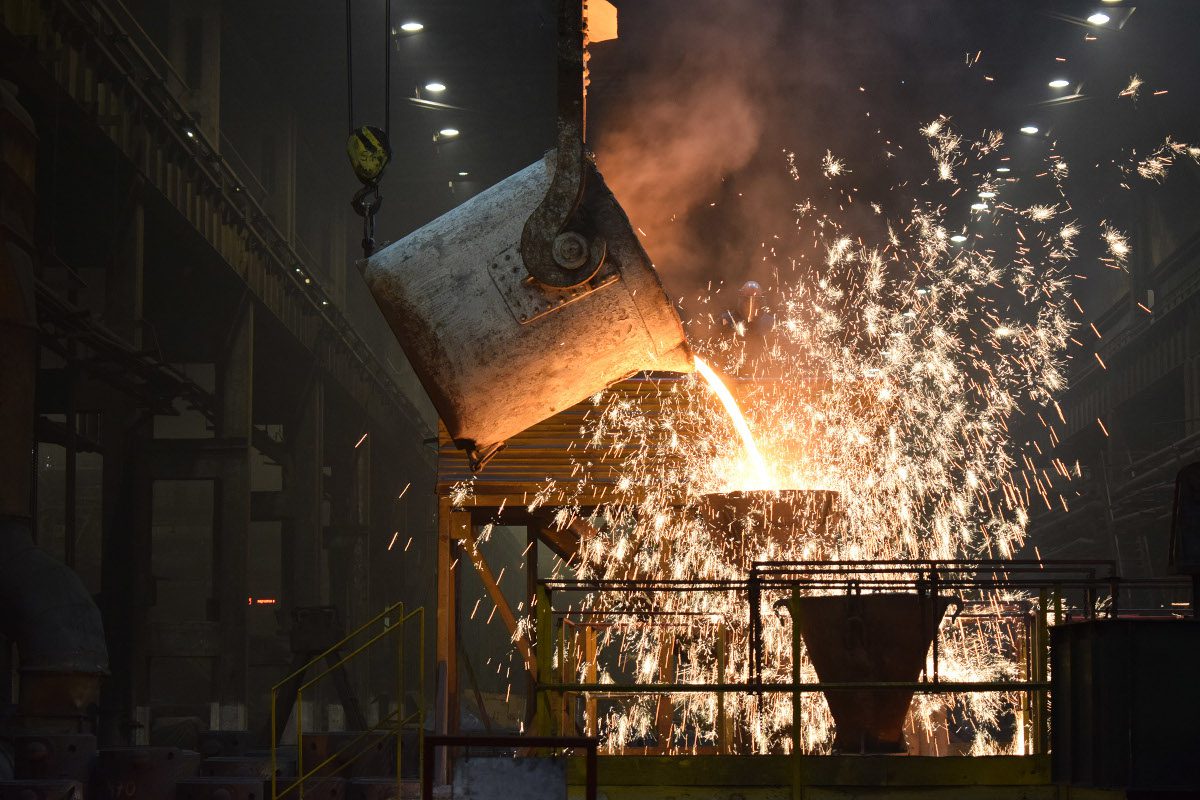
British Steel has announced plans to further decarbonize its operations via a £1.25-billion proposal to transition towards electric arc furnace steelmaking, and away from the use of blast furnaces. The TUC said the move would result in mass job losses.
Unveiling the plans as “the biggest transformation in its history”, the steelmaker said that, following detailed analysis of its current operations, available technology and challenging market conditions, the company was proposing to accelerate its decarbonisation programme.
The proposals, which are subject to appropriate support from the UK Government, could see British Steel install two electric arc furnaces (EAFs) – the first at its headquarters in Scunthorpe, the second at its manufacturing site in Teesside.
The new furnaces could be operational by late 2025 and would replace the aging iron and steelmaking operations in Scunthorpe which are responsible for the vast majority of the company’s CO2 emissions. The company proposes maintaining current operations until a transition to electric arc steelmaking.
Commenting on the proposals, on 6 November, TUC General Secretary Paul Nowak said: “British Steel must halt these plans and get around the table with unions.
“Closing down the blast furnaces at the Scunthorpe plant would have a devastating impact on staff and the local community.
“Workers won’t stand back and watch as Britain’s steel industry is dismantled in real time.
“The Conservatives are presenting a false choice. Other countries have shown that it is possible to transition to zero-carbon steel making and protect good steel-making jobs for the future.
“We can do the same here. The UK badly needs a Biden-style industrial and climate plan.”
British Steel has started preliminary talks with trade unions about electrification, and has promised to support employees affected by the decarbonisation plans. It has agreed for its proposals to be reviewed by an external specialist on behalf of the trade unions.
The company is also working with North Lincolnshire Council on “a masterplan” to attract new businesses and jobs to the Scunthorpe site, parts of which could become vacant if the proposals go ahead.
A move towards electric arc furnace production was recommended in a 2019 report, which said this could be powered by renewables and make use of the UK’s rapidly-rising volumes of scrap metal.
British Steel CEO and President, Xijun Cao, said: “Decarbonisation is a major challenge for our business but we are committed to manufacturing the home-made, low-embedded carbon steel the UK needs.
“We have engaged extensively with the public and private sector to understand the feasibility of producing net zero steel with our current blast furnace operations. However, thorough analysis shows this is not viable.
“Detailed studies show electrification could rapidly accelerate our journey to net zero and drive British Steel towards a sustainable future. It would also ensure we can provide our customers with the steel they require.
“Our owners, Jingye, have already invested £330 million in British Steel in just 3 years and they’re committed to the unprecedented investment our proposals require.”
British Steel unveiled its Low-Carbon Roadmap in October 2021, pledging to invest in a range of technologies to deliver net-zero steel by 2050, and significantly reduce its CO2 intensity by 2030 and 2035. However, the company is now proposing to accelerate its decarbonisation journey with the potential new operating structure able to reduce its CO2 intensity by around 75 per cent.
Xijun said: “Our desire to dramatically reduce our carbon footprint, coupled with current market conditions, means we can’t wait and need to transform our business as quickly as possible. And while decarbonisation will not happen overnight, it’s imperative we take swift and decisive action to ensure a sustainable future for British Steel.
“We studied having one large electric arc furnace based in Scunthorpe, one which was capable of manufacturing all of the steel we require for our rolling mills in the Humber and the North East. However, such a large furnace would require a new National Grid connection and it is anticipated this would not be available until 2034. We therefore believe the most viable and timely option is to have 2 smaller furnaces which combine to produce the volumes of steel we require.”
British Steel said it has conducted feasibility studies into introducing EAFs to Scunthorpe and Teesside, and discussed the potential changes to its operations with North Lincolnshire Council, Redcar and Cleveland Borough Council and the Tees Valley Combined Authority. Because of the need to decarbonise its operations at pace, and the planning processes required, the company expects to shortly be submitting Environmental Impact Assessments to the relevant authorities. This would enable British Steel to meet appropriate timeframes should it decide to press ahead with the proposals and it be successful in securing planning approvals.
Xijun said: “It is prudent to evaluate different operational scenarios to help us achieve our goals and we are continuing to assess our options. However, we firmly believe electrification will provide a rapid and sustainable solution to our decarbonisation challenge in addition to providing support for sustainable employment.







